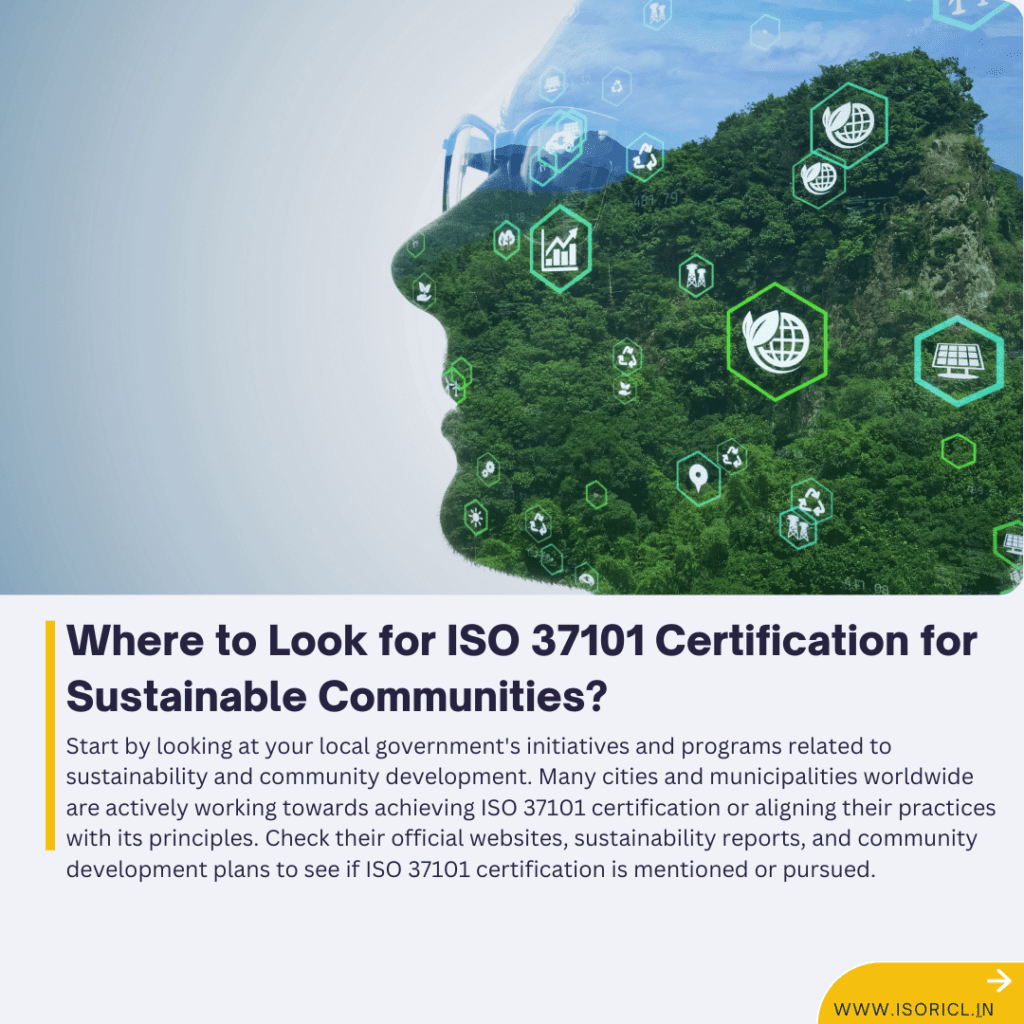Where to look for ISO 37101 Certification for sustainable communities?

ISO 37101:2016, Sustainable Development in Communities – Management System for Sustainable Development – Requirements with Guidance for Use, is a standard that provides guidelines for implementing sustainable development practices within communities. Unlike traditional ISO certification standards that offer certification audits and compliance assessments, ISO 37101 offers a framework for communities to enhance their sustainability efforts through structured management systems.
Understanding ISO 37101
ISO 37101 is designed to assist communities, municipalities, and local governments in implementing sustainable development practices by providing a systematic approach to managing social, economic, and environmental aspects. Here’s a breakdown of key aspects related to ISO 37101:
1. Scope and Objectives
ISO 37101 outlines requirements and provides guidance for establishing, implementing, maintaining, and improving a management system for sustainable development in communities. It encourages communities to integrate sustainable development principles into their governance, planning, decision-making, and operational processes.
2. Core Principles
Sustainability: Emphasizes the importance of balancing economic growth, social equity, and environmental protection to meet the needs of present and future generations.
Integrated Approach: Advocates for an integrated approach to sustainable development that considers interconnected social, economic, and environmental dimensions.
Stakeholder Engagement: Encourages active participation and collaboration among stakeholders, including residents, businesses, government agencies, non-governmental organizations (NGOs), and community groups.
3. Guidance for Implementation
Leadership and Commitment: Requires leadership commitment and organizational support to establish and maintain sustainable development goals, policies, and objectives.
Planning and Implementation: Guides communities in developing sustainability plans, setting targets, implementing initiatives, and allocating resources effectively.
Performance Evaluation: Emphasizes monitoring, measuring, evaluating, and reporting on sustainability performance indicators to track progress and identify areas for improvement.
4. Benefits of Implementing ISO 37101
Enhanced Quality of Life: Communities that adopt ISO 37101 principles improve overall quality of life by promoting clean environments, social inclusivity, and economic prosperity.
Resilience and Adaptation: Builds resilience to environmental, social, and economic challenges by fostering adaptive management practices and sustainable resource use.
Community Engagement: Enhances community engagement, participation, and collaboration in sustainable development initiatives, leading to greater social cohesion and trust.
Global Recognition: Although ISO 37101 does not offer certification, communities that align with its guidelines may benefit from recognition and endorsement of their sustainable development efforts on a national and international level.
Applying ISO 37101 Principles
Communities interested in implementing ISO 37101 can start by:
Assessing Current Practices: Conduct a baseline assessment of current sustainability practices, strengths, weaknesses, and opportunities for improvement.
Developing a Sustainability Plan: Create a comprehensive sustainability plan that aligns with ISO 37101 principles, integrating social, economic, and environmental goals.
Engaging Stakeholders: Foster collaboration and engagement among stakeholders to support sustainable development initiatives and ensure diverse perspectives are considered.
Monitoring and Reporting: Implement a system for monitoring sustainability performance indicators, tracking progress, and reporting outcomes to stakeholders.
Conclusion
ISO 37101 provides communities with a structured approach to advancing sustainable development goals through effective management systems. While it does not offer certification audits or compliance checks like other ISO standards, ISO 37101 guides communities in integrating sustainable development principles into governance, planning, and operational practices. By adopting ISO 37101 guidelines, communities can enhance their resilience, improve quality of life, promote inclusive growth, and contribute to a sustainable future for present and future generations.

ISO 22000
Food Safety Management System

HACCP
Hazard Analysis and Critical Control Points

FSSC 22000
Food Safety Management Certification Scheme

ISO 22301
Business Continuity Management Systems

ISO 13485
Quality Management For Medical Device

ISO/IEC 27001
Information Security Management System

ISO 20000-1
Information Technology Service Management

ISO 42001
Artificial Intelligence Management System

ISO 41001
Facility Management System

ISO 21001
Educational Organizations Management System

IATF 16949
Quality Management For Automotive

TL 9000
Quality Management System for Telecom

AS 9100
Quality Management for Aerospace Industry

ISO 30000
Ship Recycling Management System

ISO 55001
Asset Management System





